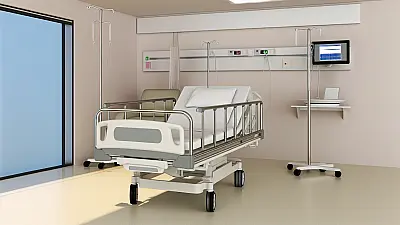HOUSTON, TX - State health inspectors cited Houston Heights Healthcare Centre following a March 28, 2025 inspection that documented persistent gnat infestations in multiple resident rooms, with facility staff acknowledging the problem had been ongoing despite monthly pest control treatments.

Recurring Gnat Problem Documented Across Multiple Rooms
The inspection revealed that maintenance staff had been treating gnat infestations on a weekly basis in addition to monthly professional pest control services. According to facility maintenance logs, gnats were documented and treated in multiple resident rooms on March 17, 19, 21, 24, and 25, 2025, indicating a pattern of recurring infestations rather than isolated incidents.
During interviews with inspectors, the maintenance worker stated that "the gnats came from Resident #404 and the urine being spilled on the floors." The maintenance staff member explained that the resident "wanted to be independent and used the urinal and placed it back on the floor," contributing to conditions that attracted the insects.
The facility's administrator acknowledged during questioning that pest control services had been treating both individual resident rooms and common areas, stating they were "doing the best they could with the gnats, all while trying to encourage the resident to be independent."
Medical and Safety Implications of Pest Infestations
Gnat infestations in healthcare facilities present several health concerns beyond simple nuisance issues. These small flying insects can carry bacteria and other pathogens on their bodies, potentially transferring contaminants between surfaces and food sources. In environments where residents may have compromised immune systems or open wounds, even minor pest issues can create infection risks.
The presence of gnats also indicates underlying sanitation concerns, as these insects are typically attracted to organic matter, moisture, and decomposing materials. When urine or other bodily fluids create breeding environments, it suggests gaps in cleaning protocols or environmental management that could affect multiple aspects of resident care.
Healthcare facilities are expected to maintain pest-free environments through comprehensive sanitation practices, proper waste management, and regular professional pest control services. When infestations persist despite treatment, it typically indicates the need for more aggressive source elimination rather than reactive treatments.
Pest Control Contract Limitations Revealed
The inspection uncovered a significant gap in the facility's pest control coverage. While the facility maintained an active contract with a pest control company since July 1, 2023, the agreement specifically excluded "Flying insects (flies, bees, wasps, and gnats)." The contract noted that service for these non-covered pests "may be provided for a fee on a materials plus labor basis."
This exclusion meant that despite paying for regular pest control services, the facility was not receiving comprehensive treatment for the specific problem affecting resident rooms. The arrangement required additional payments for targeted gnat treatment, potentially creating financial disincentives for addressing infestations promptly and thoroughly.
Industry standards typically require nursing homes to maintain contracts that address all common pest issues that could affect resident health and comfort. Comprehensive pest management programs should include preventive measures for all insects and rodents that might reasonably be expected in healthcare environments.
Impact on Resident Dignity and Care Quality
The inspection report specifically noted that gnat infestations posed risks to resident dignity and could affect how residents feel about the quality of care they receive. Living conditions that include persistent pest problems can significantly impact mental health and overall well-being, particularly for elderly residents who may already be dealing with health challenges and loss of independence.
The situation also highlighted tensions between supporting resident independence and maintaining environmental safety. While encouraging self-sufficiency in activities of daily living is an important aspect of person-centered care, facilities must balance this goal with proper sanitation and safety protocols.
Additional Issues Identified
Beyond the primary gnat infestation concerns, the inspection revealed systematic documentation problems with pest control logging and inadequate contractual coverage for common facility pest issues. The maintenance logs showed reactive rather than preventive approaches to pest management, with treatments occurring only after problems were already established.
The facility's pest control policy documentation was noted as incomplete, focusing on bed bugs and general infestation prevention without addressing the specific flying insect issues that were creating ongoing problems for residents and staff.
The citation reflects broader concerns about environmental management and infection control protocols at the 2025-inspected facility, with inspectors emphasizing the need for more comprehensive approaches to maintaining sanitary living conditions for vulnerable residents.
Full Inspection Report
The details above represent a summary of key findings. View the complete inspection report for Houston Heights Healthcare Centre from 2025-03-28 including all violations, facility responses, and corrective action plans.
💬 Join the Discussion
Comments are moderated. Please keep discussions respectful and relevant to nursing home care quality.